George Russell started 37 grands prix before claiming his maiden Formula 1 points last month and in the process removed himself from a potentially ignominious list. But not all drivers have been fortunate enough to end their drought. MotorsportWeek.com takes a look at the most experienced drivers never to have collected a championship point.
Rupert Keegan – 25 starts
Keegan, the 1976 British Formula 3 champion, spent several years in Formula 1 but was never equipped with sufficiently competitive machinery. Keegan took a smattering of top 10s in his first year with Hesketh in 1977, including seventh in Austria, a commendable achievement considering 16 drivers completed the race distance. A year with Surtees was largely fruitless, as were further outings across 1980 and 1982 with RAM, running chassis from Williams, and March. Keegan only managed one finish from his five outings with March, taking a twice-lapped 12th in the 1982 Caesars Palace finale, which brought his Formula 1 career to a close.

Huub Rothengatter – 25 starts
Rothengatter is better known for managing Jos Verstappen during his compatriot’s Formula 1 career but the elder Dutchman also competed in the championship. The entrepreneurial Rothengatter completed partial campaigns in 1984 and 1985 for Spirit and Osella respectively and the results were as expected given their potential. There were several top 10 finishes, in days where only the leading six scored, but he was lapped multiple times. Rothengatter moved to Zakspeed for 1986 but managed only two finishes from 11 starts, the best being eighth in Austria, albeit four laps down.

Ricardo Rosset – 26 starts
Rosset finished second in Formula 3000 but front-running performances in junior categories did not assist his prospects during a deeply unsuccessful two-season three-year spell in Formula 1. A dismal 1996 with Arrows, in which he was comprehensively out-shone by Jos Verstappen, was followed by a move to the new-for-1997 Lola project. But Lola’s Australian debut was a disaster, with its cumbersome car woefully slow, and the team collapsed before it could even recuperate. Rosset’s career was reborn in 1998 but in reality it was already stillborn. Tyrrell, preparing for life as BAR, had little thought for Rosset’s ability, prioritising his wallet, and savvy mechanics did not take long to profit from the wordplay in his surname. Rosset finished only four races – he failed to qualify for five – and exited after 1998.
Enrique Bernoldi – 28 starts
Bernoldi was one of the early members of Red Bull’s Junior Team though results in International F3000 did little to warrant a Formula 1 promotion. Nonetheless Bernoldi secured a seat with Arrows for 2001, where his fellow rookies were Fernando Alonso, Juan Pablo Montoya and Kimi Raikkonen, the startlingly inexperienced Finn having been preferred to Bernoldi by Sauber’s management. Bernoldi’s moment in the spotlight came in Monaco when he was a rolling roadblock for the recovering David Coulthard, who had been due to start from pole until a formation lap failure, as he held up the McLaren driver for a prolonged period. A best result of eighth came at Hockenheim, in a race with 10 finishers, while 2002 proved worse as he managed just two finishes prior to Arrows’ mid-season collapse. Bernoldi briefly re-appeared as a BAR Honda tester but did not race in F1 again.

Mike Beuttler – 28 starts
Beuttler is another of the generation of drivers who would have comfortably scored points under the current system – but not by the one that was in place in the 1970s. The Briton ran customer March machines in the early 1970s and scored six top 10 finishes, peaking with seventh in Spain’s 1973 race at Jarama. There were also eighth place finishes at the fearsome Nurburgring, classifying clear of some vastly more experienced drivers, and at Sweden’s Anderstorp venue. Beuttler exited Formula 1 at the end of 1973 and died in 1988 owing to AIDS-related complications.
Scott Speed – 28 starts
Speed had the name, and a desirable nationality, but unfortunately for Formula 1 the American was not a success in the championship. Red Bull-backed Speed linked up with Toro Rosso for its debut season in 2006, following the company’s acquisition of Minardi, and briefly scored his and the team’s first point. But eighth in Melbourne became ninth when a post-race penalty for overtaking under yellow flags cost him 25 seconds. The remainder of 2006 can be best described as character-building as Toro Rosso struggled for performance. Speed lasted into 2007 but his relationship with Toro Rosso soured and mid-season he was axed in place of a highly-rated youngster by the name of Sebastian Vettel. Speed went on to compete in NASCAR, and had an outing in Formula E, but found a home in RallyCross, winning multiple events and titles.

Tora Takagi – 32 starts
Takagi came two seconds away from not being on this list but seventh, rather than sixth, at the attrition-filled 1999 season opener in Australia meant he failed to take a point. Takagi spent the last two years of the 1990s in Formula 1 with rear-gunners Tyrrell and Arrows respectively and results were few and far between. Ninth at Monza in 1998, in a race with 13 classified finishers, was a rare high point. In 1999 he was classified in only four of the 16 grands prix owing to a spate of retirements and a disqualification for a tyre mix-up. Takagi left for his native Japan in 2000, dominating Super Formula predecessor Formula Nippon, and went on to have a moderately successful CART/IndyCar career.
Brett Lunger – 34 starts
For the charismatic Lunger Formula 1 is just a chapter of a life that has included a spell in the Vietnam War and as a pilot for humanitarian causes. Lunger is best remembered for his involvement in rescuing Niki Lauda from the burning wreckage of his Ferrari at the Nürburgring but was a capable racer whose results did not match his ability. There were nine top 10 finishes across a four-year career that was largely spent running non-works machinery, following brief spells at Hesketh and Surtees. His best results came in 1978, when running a customer McLaren M26 for the independent B&S Fabrications team, taking seventh at Spa-Francorchamps.

Max Chilton – 35 starts
Chilton stepped up to Formula 1 with Marussia in 2013 but was firmly shaded by Ferrari-backed team-mate Jules Bianchi. Nonetheless Chilton earned a reputation for being a steady and reliable driver, managing to finish his first 25 races, peaking with a best of 13th spot on two occasions. Chilton made it to 35 starts but Marussia’s demise after the Russian round, shortly after Bianchi’s ultimately fatal accident, brought an end to his Formula 1 career. Chilton has since established himself in open-wheel competition in the United States, running several seasons for Chip Ganassi and Carlin, taking a high of fourth at the 2017 Indianapolis 500.

Charles Pic – 39 starts
Pic had a solid junior career and off the back of fourth in GP2’s 2011 campaign he was signed to compete for the backmarker Marussia squad in 2012. But the team, which took until 2014 to score a point in the hands of the late Bianchi, was never in contention for the top 10 and the closest the low-key Pic came to a point was 12th in the rain-lashed Brazil finale. Pic joined Marussia’s perennial rival Caterham for 2013 but once more results were limited, a pair of 14ths his best, bringing his number of starts up to 39. Pic moved into a Lotus test role for 2014, and was the first person to trial Pirelli’s 18-inch rims during an early demonstration run, but retired from motorsport shortly after making a handful of Formula E outings and is now involved in his family-run logistics firm in his native France.

Luca Badoer – 50 starts
Poor old Badoer. Had Formula 1’s current points system been in place he would have scored in 11 of his 50 starts – not a bad hit rate – including a seventh in only his third race for the ailing Scuderia Italia squad, a year after entering the championship as the Formula 3000 champion. Badoer was lumbered with uncompetitive machinery during spells at Forti and Minardi in the mid-1990s and most famously came close to ending his drought at the rain-hit 1999 race at the Nürburgring. He was running fourth in the latter stages when the gearbox in Minardi’s M01 packed up and a crestfallen Badoer sobbed by the side of the car. Badoer spent the 2000s focusing on his Ferrari test role, in the days of unlimited testing, peaking with 85 days of action through 2004. But, aged 38, he was drafted in to replace the injured Felipe Massa in 2009, almost a decade after his last grand prix outing. It did not go well. Badoer was off the pace at Valencia and Spa-Francorchamps, prompting the creation of an unkind phrase based on his name, and was replaced by Giancarlo Fisichella for the rest of the year.



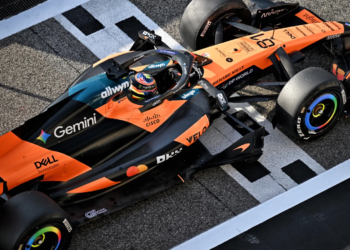
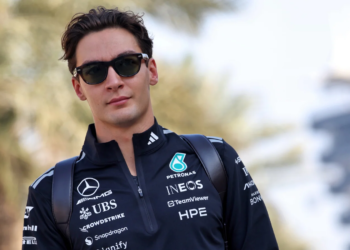
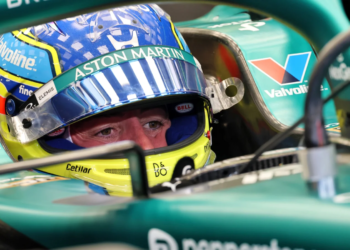
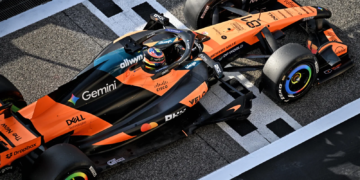
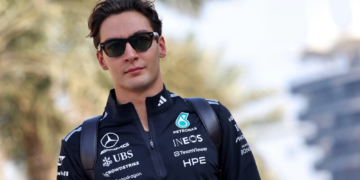
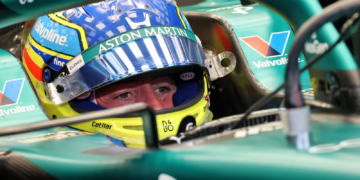
Discussion about this post